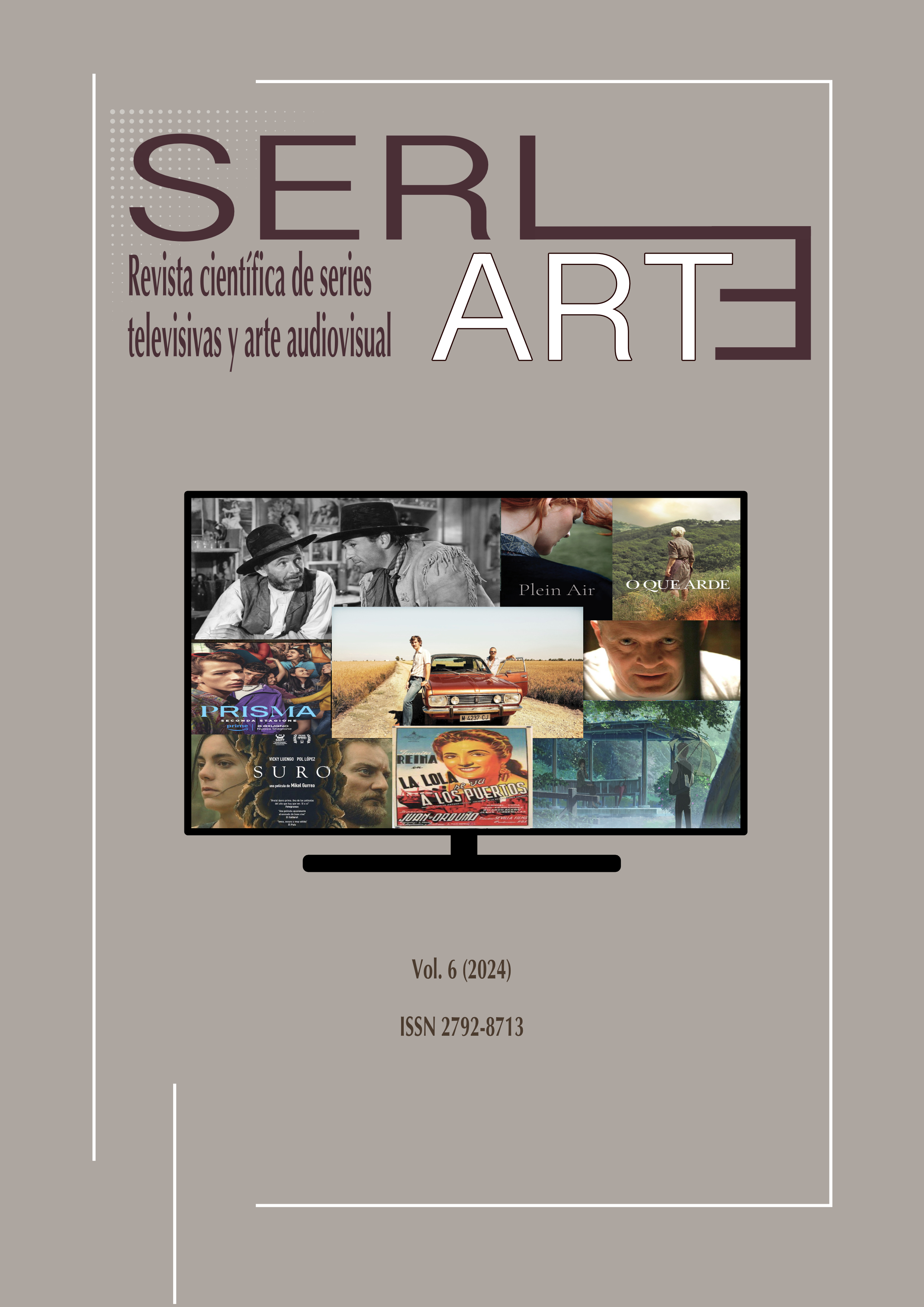Dialogues between fiction and documentary movies: how Rocío and La Isla Mínima talk about the deep Francoist’s mark in Spain
Main Article Content
Abstract
Throughout this paper, we come up with a dialogue between a documentary film and a fiction film with the aim of highlighting, through their common points, different aspects of Spain’s Transition. We consciously make this difference between both genres because fiction cinema does not need a previous pre-existing reality and therefore is self-sufficient in its narration, while documentary cinema does need tangible facts to be able to achieve its objectives (Rodríguez Merchán, 1994). We have chosen Rocío (1980) as a key film that also represents a tremendous judicial persecution for its author due to the issues discussed in the documentary. As a fictional counterpart, La Isla Mínima (2014), serves to denounce many structural aspects of Francoism that were still in force in the Spanish Transition. We understand that rural cinema is an especially favorable framework to establish a dialogue between fiction and non-fiction and through this border, to be able to establish a series of reflections based on the historical period in which Rocío was filmed and which matches with the chronology in which La Isla Mínima is set. Via this comparative analysis, we focus on an episode of Spain’s recent history through films as a strategy for historical analysis.
Downloads
Publication Facts
Reviewer profiles N/A
Author statements
Indexed in
- Publisher
- Ucopress. Cordoba University Press
Article Details

This work is licensed under a Creative Commons Attribution-NonCommercial-NoDerivatives 4.0 International License.
References
BABY, Sophie (2021), El Mito de la Transición Pacífica: Violencia y política en España (1975-1982), Tres Cantos: Akal.
BURGOS, Rosa (2007), La muerte de García Caparrós en la transición política, Málaga: Airon Sesenta.
CAÑAS PELAYO, Marcos (2023), «Incapaz de gobernarse a sí misma: Roma de HBO» n.º 3, enero, pp. 59-80. DOI: https://doi.org/10.21071/seriarte.v3i.15172
Constitución Española [CE] Artículos 143 y 151.1. 27 de diciembre de 1978.
COTA SÁNCHEZ, Ariana, SEBASTIANI, Luca (2015), «Que no, que no, que no nos representan. O repensando la relación entre investigación y activismo a partir de nuestras experiencias vividas», Ankulegi: gizarte antropologia aldizkaria = revista de antropología social, vol. 19, pp. 43-58.
COTA SÁNCHEZ, Ariana (2019), «Procesos de agenciamiento junto a Stop represión granada y un ejercicio de autoetnografía vulnerable», Papeles del CEIC: International Journal on Collective Identity Research, vol. 207, pp 1-19. DOI: https://doi.org/10.1387/pceic.19530
RODRÍGUEZ MERCHÁN, Eduardo (1994), «Realidades y ficciones. Notas para una reflexión teórica sobre el documental y la ficción» Revista de Ciencias de la Información, vol.10, pp. 162-173.
MELENDO, Ana (2013), «Dos ejemplos de documental rural en España en los años 70: Lejos de los árboles y Rocío», en POYATO, Pedro y GÓMEZ, Agustín (eds.), Campo y Contracampo en el documental rural en España, Málaga: Diputación de Málaga, pp.125-149.
FONTANA, Josep et al. (coords.)(2000), España bajo el franquismo, Valencia: Crítica.
Ley 1/1977 de 4 enero, para la Reforma Política BOE-A-1977-165.
MONEDERO, Juan Carlos (2013), Curso urgente de política: para gente decente, Barcelona: Seix Barral.
HOBSBAWM, Eric (2012), Historia del siglo XX, Barcelona: Crítica.
TUSELL, Javier (2010), Dictadura franquista y democracia, 1939-2004, Barcelona: Grupo Planeta (GBS).
ŽIŽEK, Slavoj (2013), Lacrimae rerum: ensayos sobre cine moderno y ciberespacio, Barcelona: Debate.






